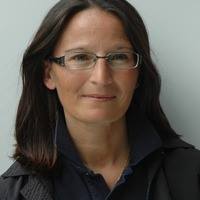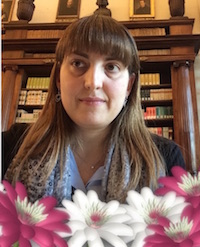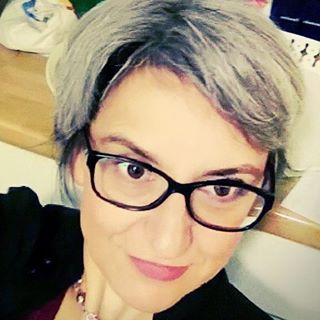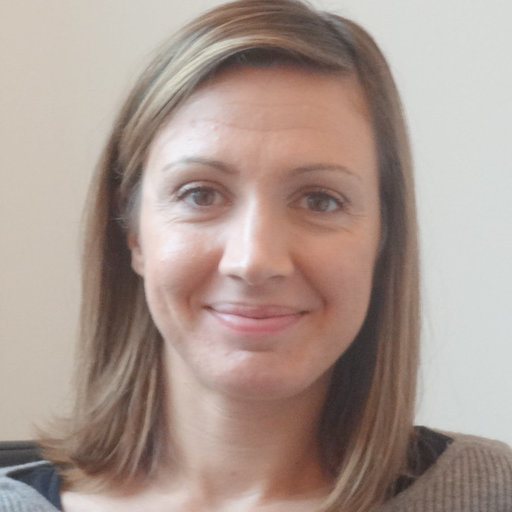Studiare
In questa sezione è possibile reperire le informazioni riguardanti l'organizzazione pratica del corso, lo svolgimento delle attività didattiche, le opportunità formative e i contatti utili durante tutto il percorso di studi, fino al conseguimento del titolo finale.
Calendario accademico
Il calendario accademico riporta le scadenze, gli adempimenti e i periodi rilevanti per la componente studentesca, personale docente e personale dell'Università. Sono inoltre indicate le festività e le chiusure ufficiali dell'Ateneo.
L’anno accademico inizia il 1° ottobre e termina il 30 settembre dell'anno successivo.
Calendario didattico
Il calendario didattico indica i periodi di svolgimento delle attività formative, di sessioni d'esami, di laurea e di chiusura per le festività.
| Periodo | Dal | Al |
|---|---|---|
| I semestre (Lingue e letterature straniere) | 30-set-2019 | 11-gen-2020 |
| II semestre (Lingue e letterature straniere) | 17-feb-2020 | 30-mag-2020 |
| Sessione | Dal | Al |
|---|---|---|
| ESAMI LINGUE - sessione invernale | 13-gen-2020 | 15-feb-2020 |
| ESAMI LINGUE - sessione estiva | 3-giu-2020 | 25-lug-2020 |
| ESAMI LINGUE - sessione autunnale | 24-ago-2020 | 19-set-2020 |
| Sessione | Dal | Al |
|---|---|---|
| LAUREE LINGUE - sessione autunnale (a.a. 2018/19) | 4-nov-2019 | 9-nov-2019 |
| LAUREE LINGUE - sessione straordinaria (a.a. 2018/19) | 30-mar-2020 | 4-apr-2020 |
| LAUREE LINGUE - sessione estiva (a.a. 2019/20) | 6-lug-2020 | 11-lug-2020 |
| LAUREE LINGUE - sessione autunnale (a.a. 2019/20) | 2-nov-2020 | 7-nov-2020 |
| LAUREE LINGUE - sessione straordinaria (a.a. 2019/20) | 7-apr-2021 | 13-apr-2021 |
| Periodo | Dal | Al |
|---|---|---|
| Festa Ognissanti (Lingue) | 1-nov-2019 | 1-nov-2019 |
| Sospensione delle lezioni | 2-nov-2019 | 2-nov-2019 |
| Vacanze di Natale (Lingue) | 23-dic-2019 | 6-gen-2020 |
| Vacanze di Pasqua (Lingue) | 10-apr-2020 | 14-apr-2020 |
| Festa della Liberazione (Lingue) | 25-apr-2020 | 25-apr-2020 |
| Festa del Lavoro (Lingue) | 1-mag-2020 | 1-mag-2020 |
| Sospensione delle lezioni | 2-mag-2020 | 2-mag-2020 |
| Festa del Santo Patrono (Lingue) | 21-mag-2020 | 21-mag-2020 |
| Sospensione delle lezioni | 22-mag-2020 | 23-mag-2020 |
| Festa della Repubblica (Lingue) | 2-giu-2020 | 2-giu-2020 |
| Vacanze estive (Lingue) | 10-ago-2020 | 15-ago-2020 |
Calendario esami
Gli appelli d'esame sono gestiti dalla Unità Operativa Segreteria Corsi di Studio Lingue e letterature straniere.
Per consultazione e iscrizione agli appelli d'esame visita il sistema ESSE3.
Per problemi inerenti allo smarrimento della password di accesso ai servizi on-line si prega di rivolgersi al supporto informatico della Scuola o al servizio recupero credenziali
Per dubbi o domande leggi le risposte alle domande più frequenti F.A.Q. Iscrizione Esami
Docenti
 angela.albanese@univr.it
angela.albanese@univr.it
 benedetta.binacchi@univr.it
benedetta.binacchi@univr.it
 elisa.destro@univr.it
elisa.destro@univr.it
 alice.fiorentino@univr.it
alice.fiorentino@univr.it
 sara.paolini@univr.it
sara.paolini@univr.it
 alberto.scandola@univr.it
alberto.scandola@univr.it
 massimo.scotti@univr.it
massimo.scotti@univr.it
 silvia.zollo@univr.it
silvia.zollo@univr.it
Piano Didattico
Il piano didattico è l'elenco degli insegnamenti e delle altre attività formative che devono essere sostenute nel corso della propria carriera universitaria.
Selezionare il piano didattico in base all'anno accademico di iscrizione.
1° Anno
| Insegnamenti | Crediti | TAF | SSD |
|---|
1a lingua straniera2a lingua straniera1a letteratura straniera2a letteratura stranieraLetteratura italiana
Un insegnamento a scelta2° Anno Attivato nell'A.A. 2020/2021
| Insegnamenti | Crediti | TAF | SSD |
|---|
1a lingua straniera2a lingua straniera1a letteratura straniera2a letteratura straniera3° Anno Attivato nell'A.A. 2021/2022
| Insegnamenti | Crediti | TAF | SSD |
|---|
1a lingua straniera2a lingua straniera1a letteratura straniera2a letteratura stranieraUn insegnamento a scelta (la filologia deve essere inerente la 1a o 2a lingua scelta)Un insegnamento a scelta | Insegnamenti | Crediti | TAF | SSD |
|---|
1a lingua straniera2a lingua straniera1a letteratura straniera2a letteratura stranieraLetteratura italiana
Un insegnamento a scelta| Insegnamenti | Crediti | TAF | SSD |
|---|
1a lingua straniera2a lingua straniera1a letteratura straniera2a letteratura straniera| Insegnamenti | Crediti | TAF | SSD |
|---|
1a lingua straniera2a lingua straniera1a letteratura straniera2a letteratura stranieraUn insegnamento a scelta (la filologia deve essere inerente la 1a o 2a lingua scelta)Un insegnamento a scelta | Insegnamenti | Crediti | TAF | SSD |
|---|
Legenda | Tipo Attività Formativa (TAF)
TAF (Tipologia Attività Formativa) Tutti gli insegnamenti e le attività sono classificate in diversi tipi di attività formativa, indicati da una lettera.
Österreichische Literatur und Kultur (2020/2021)
Codice insegnamento
4S002914
Docente
Coordinatore
Crediti
6
Lingua di erogazione
Tedesco
Settore Scientifico Disciplinare (SSD)
L-LIN/13 - LETTERATURA TEDESCA
Periodo
I semestre (Lingue e letterature straniere) dal 28-set-2020 al 9-gen-2021.
Obiettivi formativi
Il Corso si propone di introdurre all’opera letteraria degli autori austriaci più rappresentativi del primo Novecento attraverso la lettura di una scelta di testi canonici. Attraverso l’analisi e il commento dei testi in programma verranno studiati gli aspetti storici e critico-letterari.
Al termine dell’insegnamento lo studente dovrà dimostrare di possedere una conoscenza approfondita degli argomenti proposti, dovrà inoltre dimostrare di essere in grado di analizzare e comprendere i testi in programma e di esporre le conoscenze maturate, con la dovuta proprietà di linguaggio, in lingua tedesca.
Programma
OBIETTIVI FORMATIVI
Il Corso si propone di introdurre all’opera letteraria degli autori austriaci più rappresentativi del primo Novecento attraverso la lettura di una scelta di testi canonici. Attraverso l’analisi e il commento dei testi in programma verranno studiati gli aspetti storici e critico-letterari.
Al termine dell’insegnamento lo studente dovrà dimostrare di possedere una conoscenza approfondita degli argomenti proposti, dovrà inoltre dimostrare di essere in grado di analizzare e comprendere i testi in programma e di esporre le conoscenze maturate, con la dovuta proprietà di linguaggio, in lingua tedesca.
PROGRAMMA
Il Corso è strutturato in un unico modulo (didattica frontale e seminariale) e si svolge in lingua tedesca.
Bibliografia:
- H.A. Glaser (hg.), Deutsche Literatur. Eine Sozialgeschichte, Jahrhundertwende, Bd.8, Rohwohlt 1987; il cap. C. Magris, A. Reininger, Jung Wien, pp. 224-246.
- D. Wellbery (hg.), Eine neue Geschichte der deutschen Literatur, i seguenti cap.:
Der Traum als symbolische Form (Freud), pp. 803-809;
Die Grenzen der Sprache (Hofmannsthal), pp. 809-816;
September 1912 (Das Urteil), pp. 857-863;
Juli 1914 (Der Proceβ), pp. 869-875;
Oktober 1924 (Schnitzler, Frӓulein Else), pp. 911-917;
Herbst 1929, Ein anderes Gedankenexperiment (Musil), pp. 947-952.
Roth
Zweig.
Testi in lingua tedesca:
- H. v. Hofmannsthal, Ballade des äußeren Lebens, Weltgeheimnis
- R.M. Rilke, Ich lebe mein Leben, Der Panther, Archaischer Torso Apollos, Sei allem Abschied voran
- G. Trakl, Elis, Grodek
- F. Kafka, Das Urteil; Vor dem Gesetz; Eine kaiserliche Botschaft
- R. Musil, Die Maus (Nachlass zu Lebzeiten); Der Mann ohne Eigenschaften, vol. 1, scelta di capitoli
- St. Zweig, Die Welt von gestern (i cap. Incipit Hitler, Die Agonie des Friedens);
Una parte dei testi verrà messa a disposizione degli studenti in forma di fotocopia.
Parte della letteratura critica verrà indicato durante le lezioni.
Ulteriore materiale didattico sarà disponibile sulla piattaforma e-learning dell’insegnamento.
Gli studenti dovranno leggere inoltre uno dei seguenti testi a scelta:
- H. v. Hofmannsthal, Ein Brief
- Franz Kafka, Der Proceß
- Arthur Schnitzler, Frӓulein Else
- Joseph Roth, Hiob
- Stefan Zweig, Schachnovelle.
Gli studenti non frequentanti avranno la possibilità di concordare con la docente una parte del programma.
| Autore | Titolo | Casa editrice | Anno | ISBN | Note |
|---|---|---|---|---|---|
| Glaser H.A. | Deutsche Literatur. Eine Sozialgeschichte, | 2009 | |||
| David E. Wellbery | Eine neue Geschichte der deutschen Literatur | WBG | 2013 | 978-3-650-40035-2 | |
| Zeman (a cura) | Literaturgeschichte Ӧsterreichs: von den Anfängen im Mittelalter | 2012 |
Modalità d'esame
L’esame è orale e si svolge in lingua tedesca. La prova orale unica verte sull’intero programma e consiste in un colloquio teso a verificare:
- la profondità e l’ampiezza delle conoscenze maturate
- la capacità di analizzare e comprendere i testi letterari in programma
- la capacità argomentativa e l’abilità di collegare le conoscenze in una riflessione storico-culturale e critico-letteraria
- la capacità di esprimere le conoscenze maturate in lingua tedesca.
La valutazione finale è espressa in 30esimi.
Gli studenti ERASMUS sono pregati di prendere contatto con la docente all’inizio del corso per concordare insieme le modalità d’esame.
Le modalità d'esame per i non-frequentanti sono le stesse; gli studenti non-frequentanti sono comunque pregati di contattare la docente all'inizio del corso.
Tipologia di Attività formativa D e F
Per scoprire tutte le attività didattiche accreditate dal Collegio didattico clicca qui
Prospettive
Avvisi degli insegnamenti e del corso di studio
Per la comunità studentesca
Se sei già iscritta/o a un corso di studio, puoi consultare tutti gli avvisi relativi al tuo corso di studi nella tua area riservata MyUnivr.
In questo portale potrai visualizzare informazioni, risorse e servizi utili che riguardano la tua carriera universitaria (libretto online, gestione della carriera Esse3, corsi e-learning, email istituzionale, modulistica di segreteria, procedure amministrative, ecc.).
Entra in MyUnivr con le tue credenziali GIA: solo così potrai ricevere notifica di tutti gli avvisi dei tuoi docenti e della tua segreteria via mail e a breve anche tramite l'app Univr.
Area riservata studenti
Gestione carriere
Assegnazione tutore
Attività accreditate D/F
Calendario didattico dettagliato
Cambio lingua curriculare
Competenze informatiche
Competenze linguistiche (prima e seconda lingua)
Competenze linguistiche in triennale (terza lingua CFU F)
Compilazione del piano didattico
Corso di Lingua portoghese
Erasmus+ e altre esperienze all'estero
Esercitazioni Linguistiche CLA
Presentazione dei corsi di studio e Open day
Prova finale
La prova finale, a cui vengono attribuiti 6 CFU consiste nella preparazione e discussione di un elaborato scritto su materia di uno degli insegnamenti in cui siano stati acquisiti almeno 6 CFU.
La discussione dell'elaborato scritto avviene in presenza di una Commissione Istruttoria composta da due docenti dell'Ateneo che si riunisce nei giorni precedenti la proclamazione e che propone alla Commissione di Laurea (composta da almeno tre docenti) una valutazione. Alla prova finale potranno essere attribuiti non più di 5 punti su 110. L'attribuzione della lode avviene o su proposta del relatore, se l'elaborato è ottimo e la media dei voti conseguiti negli esami dallo Studente raggiunge almeno 110 punti, o in maniera automatica se la media raggiunge almeno 113 punti.
Il voto di laurea è formato da:
a) la media aritmetica dei voti conseguiti negli esami, rapportata a 110,
b) la valutazione dell'elaborato finale,
c) punti supplementari di incentivazione:
-
un massimo di 2 punti per le lodi (1 punto per due lodi, 2 punti per più lodi).
-
2 punti per la partecipazione al Programma Erasmus o assimilato, a condizione che lo studente: abbia acquisito almeno 12 CFU per un semestre di mobilità nel corso del ciclo di studi (24 CFU per due semestri di mobilità) e consegua il titolo finale entro la durata normale del corso di studi.
-
1 punto per la partecipazione al Programma Erasmus o assimilato, a condizione che lo studente: abbia acquisito almeno 12 CFU per un semestre di mobilità nel corso del ciclo di studi (24 CFU per due semestri di mobilità) e consegua il titolo finale anche oltre la durata normale del corso di studi.
-
Lo studente vincitore del bando del Ministero dell’Università per assistente di lingua italiana all’estero o di borsa Comenius presso scuole di 1° e 2° grado dell’Unione Europea otterrà un punteggio supplementare, che sarà aggiunto alla media finale del voto di laurea: 1 punto, per una esperienza di assistentato fino a 6 mesi; 2 punti, per una esperienza di assistentato superiore a 6 mesi.
Non possono essere attribuiti punti di incentivazione per qualsiasi esperienza all’estero svolta dallo studente su iniziativa privata, anche se riconosciuta come equipollente dal Dipartimento/Collegio Didattico.
-
2 punti per la conclusione degli studi in corso (solo per gli studenti di prima immatricolazione, senza il riconoscimento della carriera pregressa o sospensione di carriera).
Adempimenti amministrativi, scadenze domanda di laurea, calendari delle discussioni elaborato finale e proclamazioni di laurea al seguente link Sessioni di laurea
Saperi minimi
Stage e tirocini
Le attività di stage sono finalizzate a far acquisire allo studente una conoscenza diretta in settori di particolare interesse per l’inserimento nel mondo del lavoro e per l’acquisizione di abilità professionali specifiche.
Le attività di stage sono svolte sotto la diretta responsabilità di un singolo docente presso studi professionali, enti della pubblica amministrazione, aziende accreditate dall’Ateneo veronese.
I crediti maturati in seguito ad attività di stage saranno attribuiti secondo quanto disposto nel dettaglio dal “Regolamento d’Ateneo per il riconoscimento dei crediti maturati negli stage universitari” vigente.
- Tutte le informazioni in merito agli stage per futuri studenti sono disponibili alla pagina Stage e tirocini.
- Tutte le informazioni in merito agli stage per studenti iscritti sono pubblicate in MyUnivr - come fare per - stage e tirocini.
- Tutte le informazioni in merito agli stage per le aziende sono disponili alla pagina Stage e tirocini per azienze.
Ulteriori informazioni al seguente link https://www.univr.it/it/i-nostri-servizi/gestione-carriere-studenti-lingue-e-letterature-straniere/stage-e-tirocini-lingue-e-letterature-straniere


 +39 045802 8409
+39 045802 8409
















































